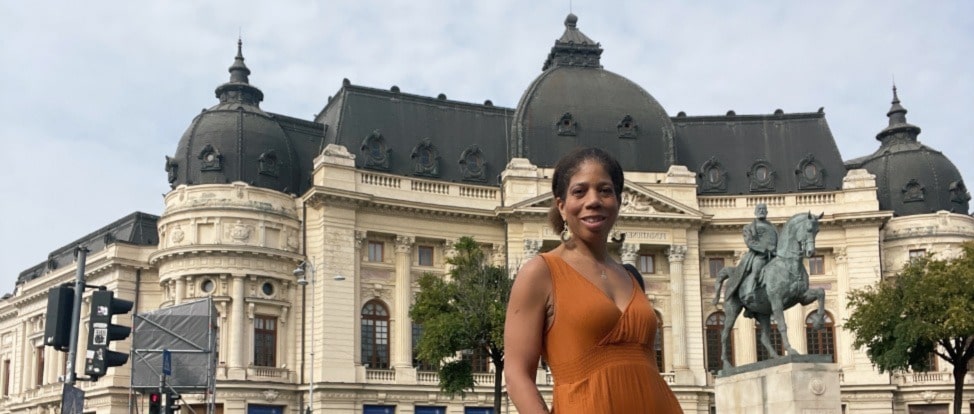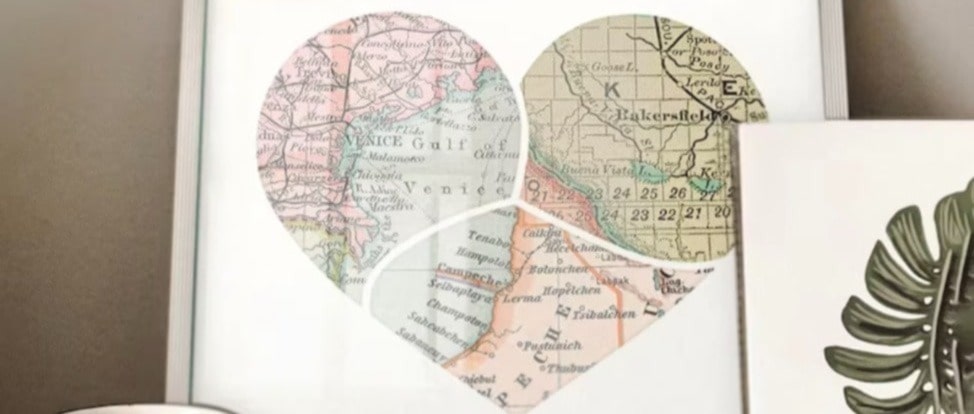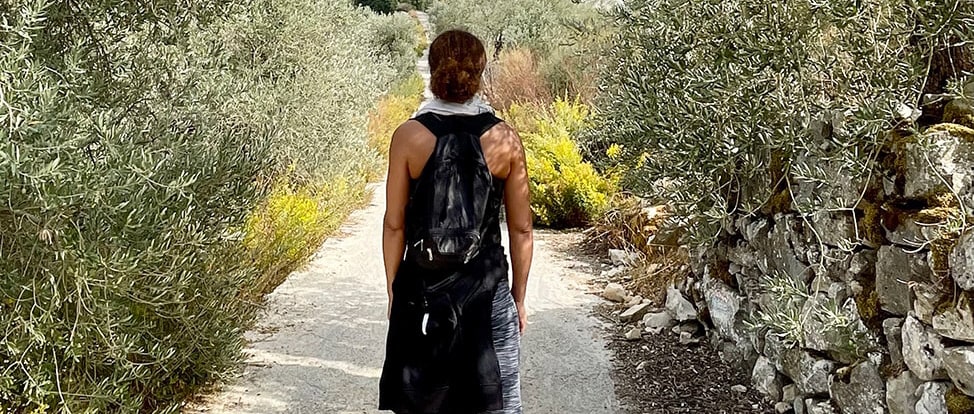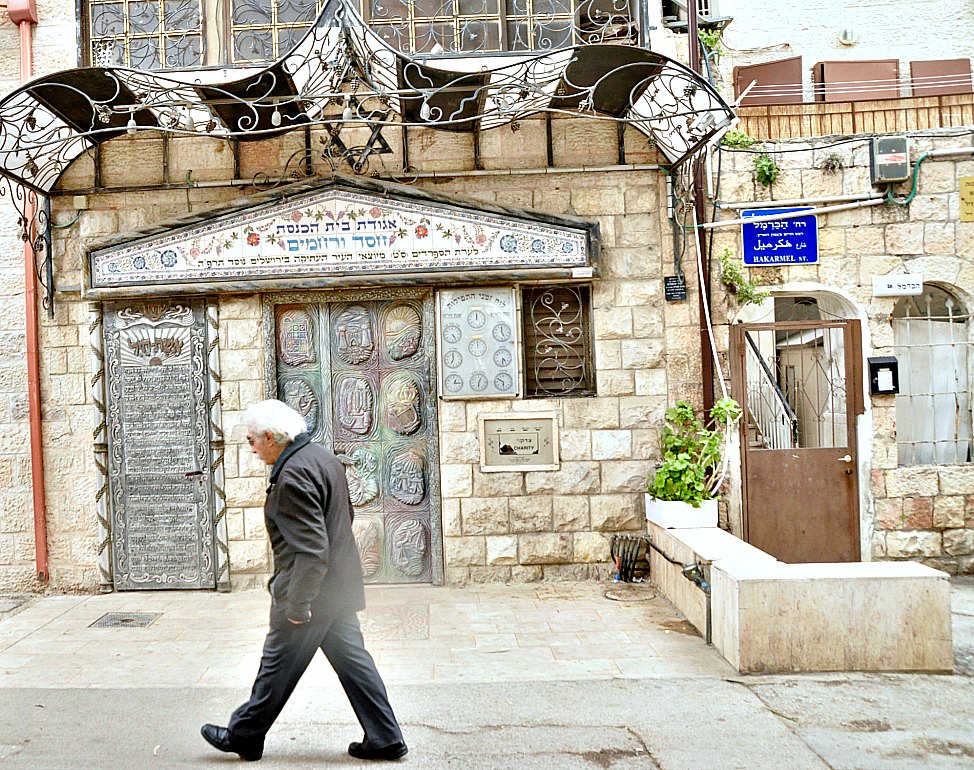
Living in Los Angeles, I am rarely far from a Jewish community. When I moved into my first apartment near Beverly Hills, I quickly found myself to be in the minority. Not because I was a black woman (though that factored in too), but because I was one of probably 2 or 3 non-Jewish families in the whole building. Growing up outside of Pittsburgh, PA, I could list all of the Jewish families in our community on one hand. In Los Angeles, I would need a full team of census takers to compile the list. And even though I have since moved out of that apartment, I still don’t have to go far on a Saturday to see Orthodox Jewish families out and about. They are observing the Sabbath by not riding in motorized vehicles, but instead walking to the local synagogue or to visit friends and family. And while this scene was quite familiar to me, I also realize that I don’t know any of these people personally. We live very different lives, though in very close proximity.
Their comings and goings seemed very foreign to me. I see the older Orthodox Jewish men with thick beards and heavy black coats and hats walking in the hot Los Angeles summer sun. I am left wondering how they manage when I’m overheating in my simple sundress. I see large Jewish families on the way to or from a synagogue and realize I haven’t been in one since I attended a friend’s bat mitzvah back when I was 13. From my perspective, the Orthodox Jewish community seems extremely foreign. Like a private club that I have no connection with and in all honesty one where I do not feel particularly welcome. In my nearly 15 years in Los Angeles, I never had a negative incident with anyone who followed Orthodox Jewish customs … but I never had a positive interaction either. We were just in two totally separate worlds that did not ever come together.
When I visited Jerusalem earlier this year as part of a travel blogger’s conference, I was excited to go along on a number of different tours that introduced me to the history, religion and culture of the city. But of the many different tours I took part in, the one that meant the most to me was one called “the Jerusalemites”. This 2 hour tour allowed us to meet and interact with different members of Jerusalem’s society. We met Uzi, a larger than life character who ran a juice stand in the Machaneh Yehudah market. He had our group laughing and tasting all sorts of natural juices within seconds of walking into his shop. We visited Sharon in her artist workshop/gallery where she worked with distressed and recycled window frames and photographs to explore the history and future opportunities of Jerusalem.
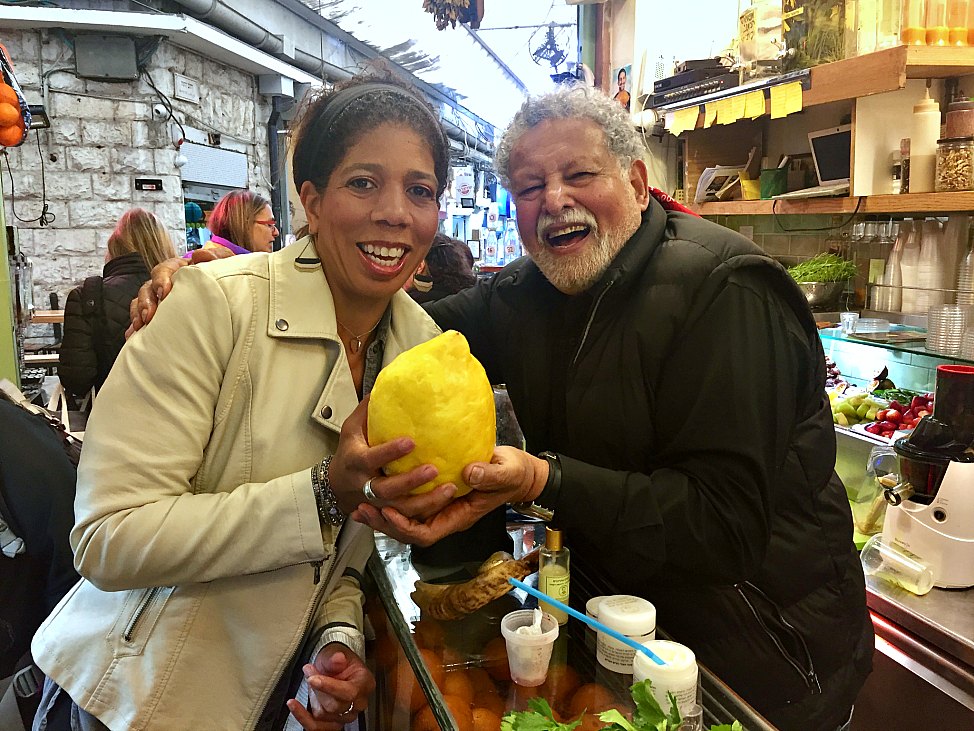
But the woman who I was most interested in meeting was an ultra-Orthodox Jewish wife and mother who invited us into her home to share what a typical day is like for her and her family.
After strolling through some residential side streets not far from the central Machaneh Yehudah market, we came to a cluster of modest homes. Our group of about 12 people stood in a central courtyard and waited for our host to arrive. Before long, a woman carrying a few month old baby introduced herself to our tour leader then welcomed us with a warm smile and a hello. This was Ayelet – our introduction to the Lubavitch ultra-Orthodox Jewish community. While she was plainly dressed and wore a basic wig to cover her hair as many Jewish women do, something about her demeanor seemed joyful, content and at ease. She wasn’t trying to be fancy or impress us, but rather wanted to welcome us into her community with her open yet modest demeanor.
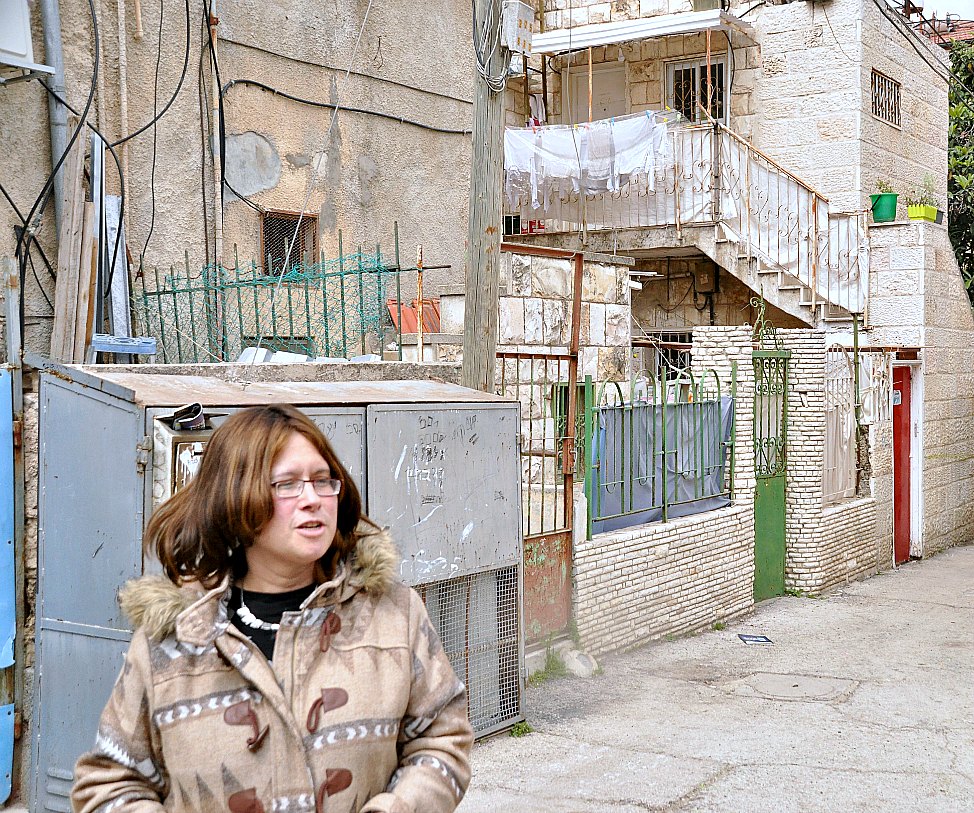
Before entering her home, we stood in a small cluster in a central courtyard while she spoke about the importance of her community which was based on their local synagogue and the teachings of a particular rabbi. She told us about their shared responsibility for each other and the closeness between the local families, even if they were not related by blood.
As she was speaking her eyes wandered to a black garbage bag that was near the entrance of her home. After looking inside the bag, she said that it was left by a neighbor and was full of second-hand baby clothes for the child that she was holding in her arms. She didn’t know which neighbor left the clothes but that wasn’t important. Their community just watched out for one another and didn’t expect to be singled out for any special thanks. And why was she given these clothes? Because as this was her eighth child, and only her husband brought in a salary, money was tight. Any donations of this sort were appreciated.
We spoke a bit more about the importance of the community in the ultra-Orthodox Jew’s life, and then she invited us all inside her home. After all of those years in Los Angeles, I had never been invited into, or even thought about visiting the home of one of the Orthodox Jewish families I see regularly. Her home was modest, decorated only with a few pictures of religious leaders, hand drawn artwork by her children and shelves and shelves of books from floor to ceiling. Most, if not all of these were religious texts, I believe. She had laid out some fruit and sweets and juice for her guests and had borrowed plastic chairs from her neighbors so we could each have a seat.

As we settled ourselves, she began to tell us about her daily life and the things that were most important to her. She spoke about what she believed to be the 3 Blessings in Life: Health, Family and Money. And when we all expressed surprise at how she managed to take care of a family of 8 children, she explained her desire for a large family in this way: Just as you want an abundance of money and good health for those you care about, why would you not also want to have as large a family as possible? She wants to maximize all three of the blessings – not just one or two. And while the mothers in our group spoke about how challenging even two or three children can be, our host said that if God intended for it to be so, she would happily have a ninth or tenth child!
Much of Ayelet’s day involved caring for the home and for her children and her husband when he returned from work. She spoke about how much of her time is spent interacting with family. Her home did not have any distractions aside from books. No television, computer, radio or smart phones existed anywhere in the home. One person asked: “Well what about important world events?” Didn’t she feel at a disadvantage because they could not easily find out about what was going on in the world? In response, she smiled sweetly, shook her head, and said it was not so much of a concern to them and their community. So much of what is reported on the news and social media sites is based on rumor, opinions, speculation and gossip. Those are not things that they want or even need in their daily lives. And with a strongly knit community, they do find out about events that are important to their wellbeing. But a lot of the other “noise” is avoided.
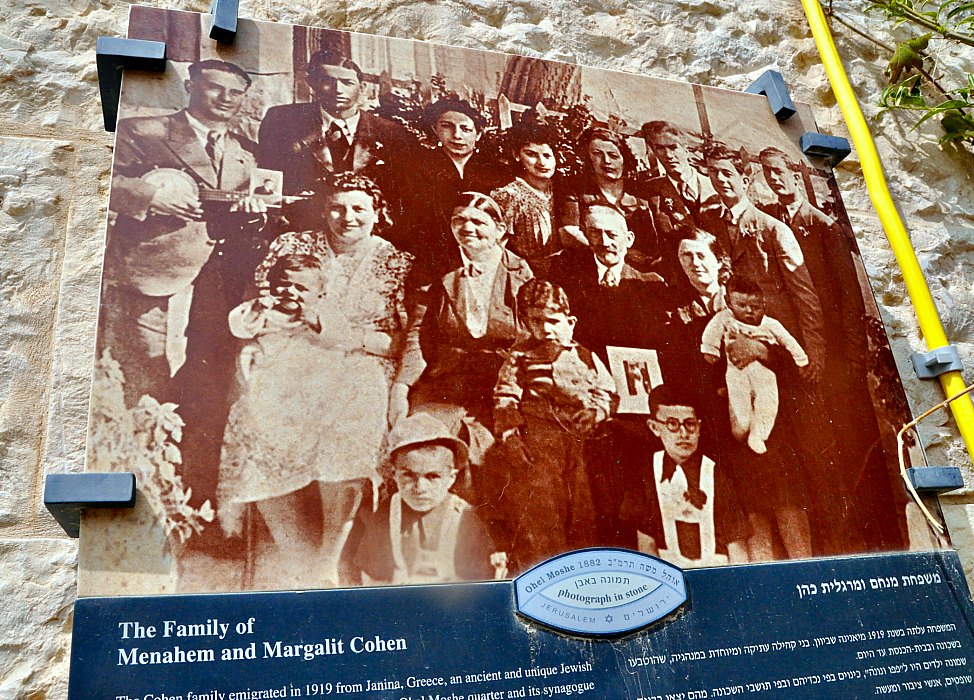
Earlier in the trip, I had learned that in the Jewish religion there are 613 commandments, or mitzvot, that must be adhered to (that’s 603 more than I had learned about in Sunday school!). At one point I asked her how those 613 mitzvot played a part in her life and wasn’t it difficult to try and abide by all of them. Or even remember them for that matter. She said that rather than seeing them as a burden, she found joy in attempting to live her life in their accordance. So much of life is your perspective and how you look at things. What I immediately thought of as “trying” she saw as “joyful”. And when I found this quote, her perspective really made sense to me: “Hasidim focuses on a loving and joyful observance of the laws laid out in the Torah, and a boundless love for everything God created.”
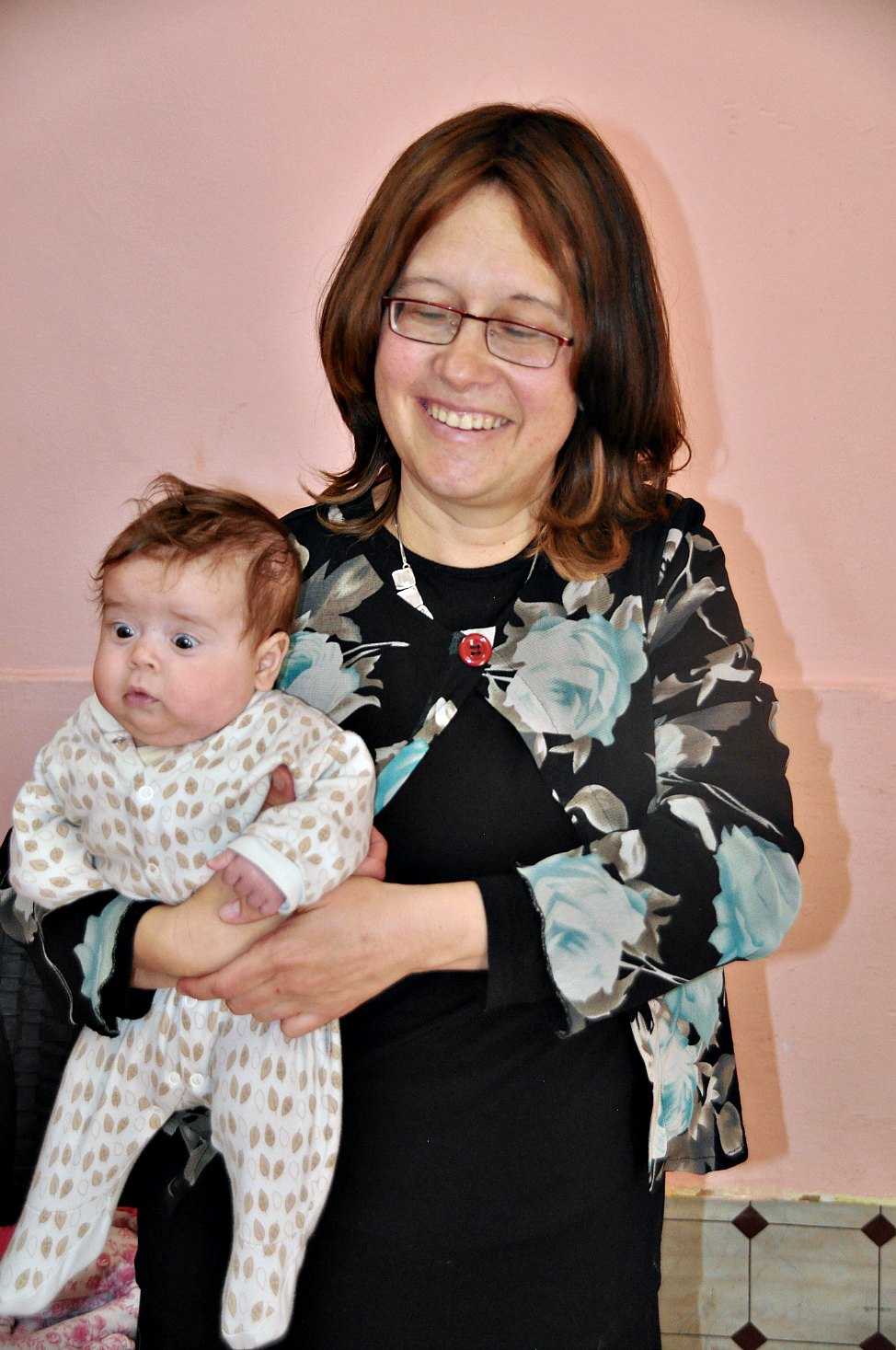
For our host and her family (and her community for that matter) the main focus is upon God in life “in all days and all ways”. I have to say that this brief visit to sit with a member of the ultra-Orthodox Jewish Community was one of the most memorable parts of my trip. I wish I could have stayed and talked to her for hours. Of course visiting the iconic historic sites of the Old City of Jerusalem and seeing the places where Jesus was said to have lived and died was a hugely significant part of my trip. But there was something about being invited into a person’s home and hearing about their stories and beliefs that really stuck with me. One thing I couldn’t capture in my photographs or even fully accurately with the words that I’m typing, was the sense of peace and joy and contentment that our host exuded with her simple words and stories and actions. Her life is so vastly different than mine, yet I can see the beauty in how she lives. Nothing fancy, nothing elaborate, but she appears to have everything that she needs and her focus for herself and for her family was so clear.
Thank you, Ayelet, for welcoming us into your home and sharing your way of life, your culture and your religion with us. It was an important illustration of how travel opens so many opportunities for learning in so many different ways. This is a blessing in and of itself!
Note: This tour was one of many in and around Jerusalem provided by the company Yerushalmit. Check out their website for information on similar tours.








